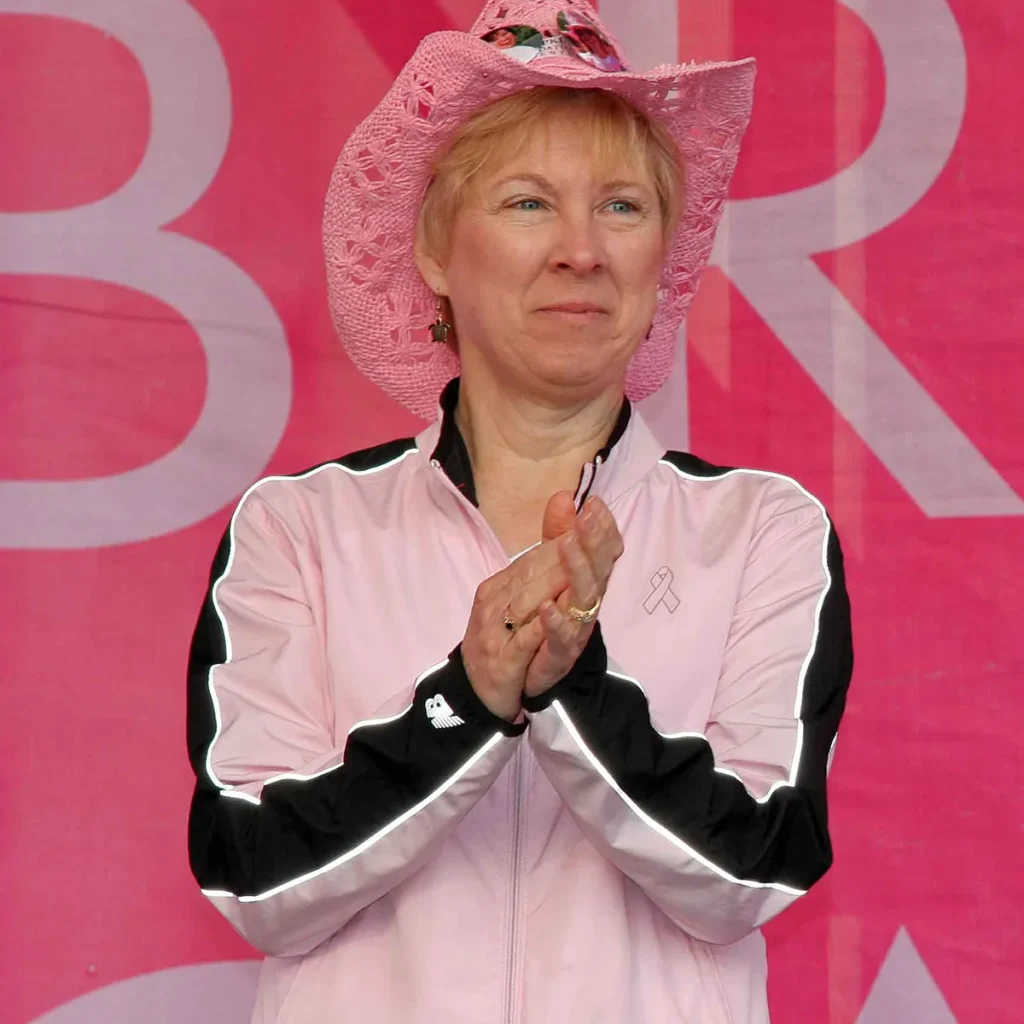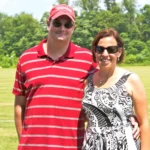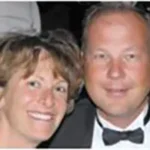A Nurse is a Two-Time Survivor Who Guides Others

Deb Stewart has battled breast cancer twice. A nurse by training, she now works with breast cancer survivors, lending her support and wisdom gleaned from experience. Her work is not only valuable to patients, it’s rewarding for Deb. Or, as she puts it, “You get more than you give.”
Listen
Transcript
My name is Deborah Stewart. I am 57 years old and I am a two time breast cancer survivor. I’m a nurse at Johns Hopkins Avon Foundation Breast Center. My role today at the Breast Center is that of nurse navigator. I am able to connect with patients as they’re newly diagnosed. Providing information is vital so that they can make good decisions.
I also am a part of the volunteer program in that I get to manage the volunteers at the Hopkins Breast Center where we have survivors helping survivors, we have volunteers in imaging, we have volunteers at the various walks. My other role is to facilitate retreats. We have four retreats a year for, two for breast cancer survivors and two for women with metastatic breast cancer.
When I was diagnosed at the age of 25, there were no things such as breast centers. You went to a surgeon and he said, Yep, you have a lump. Let’s excise it. And you went into the hospital and had it removed. So there was no time to think about what was going on. There was no information shared. Fast forward 20 years.
I have a new finding on a mammogram in the other breast. The radiologist calls me on the phone and says it’s cancer, but it’s very early and you’re going to be treated and it’s going to be cured. And he used those words, treatable, curable, and I, I held on to that. I learned from the first one. I went to a breast center where doctors specialized in surgery and taking care of the breast and that, that sold me.
The Breast Center was focused on breast cancer and I liked that. And I wanted to give back, as many of my volunteers today say, I want to give back. People have helped me along the way. I want to be part of that. There are many messages that I hope to get across without having to say them. I was in a room with a woman and her three beautiful adult daughters.
And this woman had more medical problems than me. Breast cancer would not take her life. Something else will someday. And she was terrified of hearing, I have breast cancer. She was just so upset and she couldn’t focus and the doctor left the room and I sat there with her and I talked to her. When I got done, the daughters had been wrapped in my conversation with her mom.
One looked at me and she said, you’re a walking testimonial. And I just puffed up and I thought, Isn’t that wonderful? As I left the room and all smiles and I got out of the room and I went, Oh, what a responsibility. To be a walking testimonial is wonderful, but you don’t always connect.
You just have to put yourself out there, and it’s all about the patient. It’s not about me anymore. You get more than you give. And it’s an amazing time to be in somebody’s life when they feel so vulnerable and so frightened. And you’ve walked that walk, or worn their bra, as we like to say.






